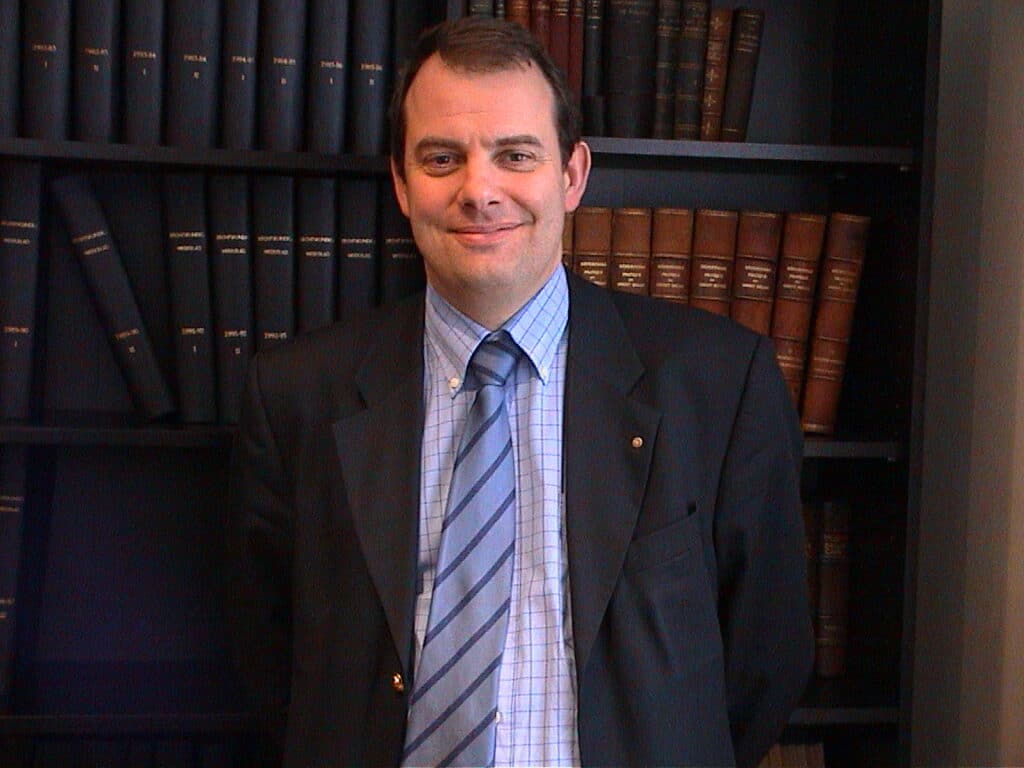
The interview was first published in Le Journal des Tribunaux (March 2021)
As Avocats Sans Frontières is about to celebrate its 30th anniversary, the Journal des Tribunaux sat for an interview with Patrick Henry, the newly elected ASF’s president, to address the organisation’s history and its special relationship with Belgian lawyers and bar associations.
First of all, congratulations on your recent appointment to the presidency of ASF. The association has evolved a lot since its creation. What was the role of lawyers in the organisation’s work in its early days?
Lawyers have always played a central role in the work of ASF. The association was born in the minds of a group of Belgian bâtonniers and lawyers, under the leadership of bâtonnier Pierre Legros , in 1992. In its first project, ASF’s aim was to enable Belgian and European lawyers to travel abroad to defend litigants in “sensitive” cases, where benefing from the service of an independent lawyer was not always a guarantee. Lawyers intervened in many countries such as Cuba, Palestine, Brazil, Turkey, Russia, Morocco, Sierra Leone, Bolivia, etc. Hence the name of the organisation, of course.
Why did the organisation’s mandate change so quickly?
The first turning point came with the genocide in Rwanda. It was a great shock for everyone. As early as 1994, ASF set up a programme to try to make up for the cruel lack of trained lawyers available. This seemed fundamental for the defence of both victims and defendants. In a human context that was as crucial as it was dramatic, it was necessary to guarantee the principles of a fair trial and the respect of international standards.
It was at this point that ASF began to take an interest in international criminal justice and the role of justice in post-conflict zones. These issues have since become central to the organisation’s mandate.
This was also a fairly rapid change of approach, since only two years after its creation, ASF was already broadening its field of action by adding to immediate assistance the technical and legal reinforcement of lawyers.
And our field of action has only broaden eversince. Today, ASF aims to contribute to a more just, equitable and supportive society, in which law and justice are at the service of groups and individuals in vulnerable situations and where a rule of law based on human rights is strongly established.
Over the years, justice has become a means to achieve these objectives. Today, ASF works in partnership with a multiplicity of national and international actors: civil society organisations, justice actors, local and national authorities but also academics, community representatives and, of course, the population itself.
How does working with these actors complement the work of lawyers?
The lawyer remains a central actor of change in ASF’s vision, but many others have proven to be essential to the achievement of our objectives in the countries where we work.
Take the example of the Central African Republic. There are only about a hundred lawyers for 4,500,000 inhabitants. And the vast majority of these lawyers practise in Bangui, the capital city. The formal judicial institutions are therefore generally absent in the remote areas. However, as everywhere, there are conflicts and these must be settled. How are they settled? By using informal structures: the citizen goes to village or neighbourhood chiefs, religious leaders, police officers, elders, etc. These mechanisms are essential to avoid the development of larger conflicts. They are essential to avoid the escalation of violence in these regions. However, exclusive recourse to this type of conflict resolution is far from guaranteeing impartial treatment of the parties involved. It is therefore necessary to make sure they do not simply replace the state courts. Otherwise, injustice will set in. This is why it is necessary to rely on these different actors and to ensure that they interact well together.
Lawyers have an important role to play in this area. And this is what they do in many countries, offering, in addition to their legal assistance and representation in court, mediation, information and advice to local actors. The training of paralegals who can help people to become aware of their rights and learn how to assert them has great potential in this respect.
So ASF’s ambition is to offer a more holistic approach?
Exactly, by multiplying the number of interlocutors, we can tackle problems structurally and increase our chances of bringing about lasting changes that have a real impact on the lives of litigants, but also on the rule of law, access to justice and the reduction of inequalities.
Our approach has also become more comprehensive. It no longer focuses solely on the countries of the South. The issues we work on in our countries of intervention – such as detention, the reduction of civic space, threats to individual freedoms, etc. – are issues that concern us all. It is important to think about them in this way. This is why we recently developed cross-cutting projects. For example, in 2020, we coordinated a project to monitor the impact of prevention measures linked to the pandemic on individual freedoms both in Belgium and in our countries of intervention. And the conclusions are often similar than we might think.
We are also closely following the work of the parliamentary commission charged with addressing Belgium’s colonial past. What is its impact on our societies today? How can we ensure the reconciliation necessary for healthy relations between these countries, their populations and their diaspora ? How can we ensure we do not keep reproducing those dynamics of domination?
It is interesting because this project is very much in line with the themes of international criminal justice and transitional justice, which we have been working on for a very long time.
What do you wish for ASF in the future?
To continue to be dynamic, to take into account the changing contexts in which we live, and to look for the levers that really enable us to fight against injustice in the world. The health crisis has accelerated certain changes. We must see them as opportunities. Digitalisation, the creation of communities of practice, the sharing of expertise, the global approach to certain issues, positioning in the North, etc., are subjects that ASF has been working on for years, but we have, by necessity, made a lot of progress on these issues in 2020. It is through new collaborations, new approaches, that we can remain relevant while keeping the mandate of our organisation in focus.
We also need to be aware that in a growing number of countries, the very notion of human rights is being challenged, denounced as a product of capitalist-colonialism. This could be a turning point. Many countries have stopped trying to justify that they respect the standards of the Universal Declaration of Human Rights. Now they challenge them by rejecting them outright. For them, individual rights only correspond to an uncontrolled growth of desires, which precipitates our democracies into a logic of infinite demands that they call ungovernability or impolitics.
Some people are announcing the death of human rights. There is more to this than meets the eye. And, through some of our excesses, we are giving substance to it. But we must be aware that it poorly conceals a desire for hegemony, oppression and subjugation.
This is a great challenge for our societies. To show that equality, solidarity, dignity, freedom, the rule of law, justice for all, etc. are universal values. That they are valid for all and not only for white, male and Christian Europeans.
This is the challenge that ASF intends to take up. With the greatest number of you, I hope.



